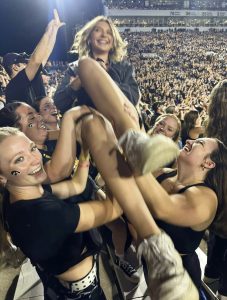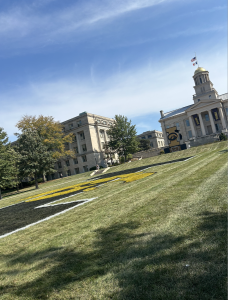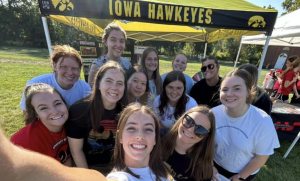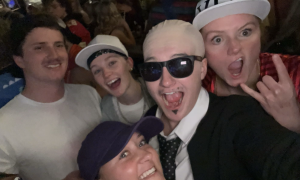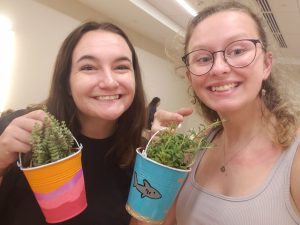We are almost a month out from college decision day! I remember when I was looking at colleges, I was torn between the University of Iowa and where I thought I was going to attend college my whole life. So why did I choose Iowa? For academics and career preparedness, it was a no-brainer once I learned of the resources here.
I knew I wanted to attend medical school after college, but even if my plans changed I realized the University of Iowa could prepare me for it all! You may ask how the university can be so versatile to prepare students for all sorts of paths after a bachelor’s degree, and the answer to that is the Pomerantz Career Center.
The Pomerantz Career Center is an on-campus office that ultimately works with students so that they can become more professional and curate resumes, cover letters, personal statements, and LinkedIn profiles that demonstrate that and themselves in the most ideal light. Not only does their office do this, but they do so much more!
Looking at other college institutions, I found it hard to find anything that resembled the Pomerantz Career Center and all the services offered to students. This made me believe that the University of Iowa does not only wants their students to succeed while they are here but also after college in the job market.
Here is an example of what they do:
You may realize, you can make some good progress with the resources online. However, you would be missing out on mock interviews, actual courses to further your skills, career fairs, and my favorite: one on one guidance.
I met with a Career Coach at the Pomerantz Center recently and it was probably one of the most motivating, impactful, and informative meetings I have had at the University of Iowa. After this meeting, I actually wished I began using these in-person resources sooner than I did. We started with the idea that I needed to write a personal statement for graduate school, but we addressed I was experiencing writer’s block and wasn’t really getting anywhere. I had things I wanted to say or at least address in my personal statement, but I alone could not weave them together seamlessly or figure out what information was necessary.
In our meeting, instead of focusing directly on the essay, we transitioned into why I wanted to go down the career path I am on, what my strengths were, the kind of person I am and want to be, and more. We created a mind map of what I thought was important to include and what messages I wanted to convey to those reading my statement. This turned into my outline.
Generally, I write with ease and don’t necessarily need an outline. However, with such pressure on how much this singular personal statement met for my future career, I was having a hard time sticking to a single theme. I wanted to include all sorts of little aspects and details of my life that I thought were important, but they didn’t necessarily stick to the theme I was trying to convey.
Meeting with both my academic advisor and a career coach in the Pomerantz Center helped me stick to the theme I was trying to convey. However, those other aspects I thought were important to include in my personal statement weren’t thrown out of my application. In our meetings, we found what I wanted to convey to admissions committees, and found a better spot for this information in my application.
I genuinely think meeting with advisors and coaches in person rather than using just the online resources helped me make the best application I could for medical school that made me stand out for who I am. Without the one on one experience working through my application, I would be stuck in writer’s block, have a more general application, and probably include a lot of information that could have a maximized effect if it was included in another area.
I highly recommend not only coming to the University of Iowa to use this great and personal resource for all your future endeavors but also to feel free to get a head start on your professional appearance by using the online resources available to you now. The best part is even after you graduate (for one whole year) you can continue to use the in-person resources that become available to you when you enroll as a student.
Continue Reading →
